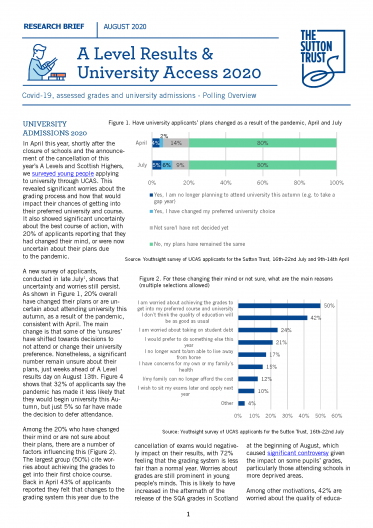In April this year, shortly after the closure of schools and the announcement of the cancellation of this year’s A Levels and Scottish Highers, we surveyed young people applying to university through UCAS. This revealed significant worries about the grading process and how that would impact their chances of getting into their preferred university and course. It also showed significant uncertainty about the best course of action, with 20% of applicants reporting that they had changed their mind, or were now uncertain about their plans due to the pandemic.
This new survey of applicants, conducted in late July, shows that uncertainty and worries still persist.
